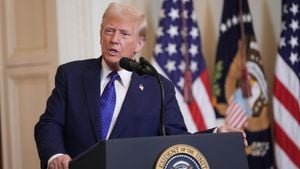The Dalai Lama, Tibetan Buddhism's revered leader, has been granted Z-category security by the Indian government amid increasing concerns for his safety. According to reports from India Today, this significant uptick in protection follows intelligence threat assessments indicating potential risks from various entities, including those with ties to China. Under the new security arrangement, the 89-year-old Dalai Lama, who has lived in India since fleeing Tibet after the Chinese takeover, will now receive protection from 33 dedicated personnel.
This upgraded measure includes armed static guards stationed at his residence located in Dharamshala, Himachal Pradesh, along with personal security officers who will provide round-the-clock service. Commandos will form armed escorts to accompany him during travel across the country, and trained drivers and surveillance personnel will be on duty at all times to secure his safety.
The Ministry of Home Affairs (MHA) indicated the provision of Z-category security, managed by the Central Reserve Police Force (CRPF), follows careful reviews conducted by intelligence agencies. Reportedly, around 30 commandos will be assigned to safeguard the Dalai Lama during operational shifts. Previously, he had relied primarily on local police for protection, which was deemed insufficient due to increased threats as portrayed by intelligence reports.
Having fled Tibet following the failed uprising against Chinese rule, the Dalai Lama has long housed significant geopolitical relevance—especially as concerns about his life have escalated over the years. Intelligence reports have expressed specific concerns about threats posed by China-backed actors, which have forced the Indian authorities to prioritize his safety.
This attention to security is particularly pertinent considering the Dalai Lama is not just any religious leader. He has become a prominent global figure advocating for peace and spirituality from his base in India. His upcoming 90th birthday on July 6 is expected to mark not only personal celebrations but also potentially pivotal announcements about his near future and the question of his reincarnation.
The issue of succession remains particularly sensitive as China has expressed intentions to define the future of the Dalai Lama's role with regard to Tibetan Buddhism. His past political rule over the Tibetan government-in-exile formally came to an end in 2011. China has consistently rejected the authority of this government, intensifying the debate over who will succeed the Dalai Lama and how traditional Buddhist beliefs will represent this transition.
Despite receiving the Z-category security upgrade, the Dalai Lama has continuously expressed his hopes to return to Tibet before he passes away. Yet he has consistently reminded his supporters of the complex nature of geopolitical realities complicates this wish. It remains uncertain how the international climate, alongside internal pressures within Tibet, might influence his aim for return and his succession plans.
The announcement of this upgraded security has drawn parallels to other recent decisions made by the Home Ministry, such as the provision of similar Z-category protection for BJP leader Sambit Patra due to persistent ethnic violence impacting parts of India. It demonstrates the heightened awareness within the Indian government of the need to appropriately safeguard significant public figures amid rising tensions.
With the substantively increased protection, the Dalai Lama can continue his missionary work and meditation practice with greater peace of mind. His commitment to promoting harmony and human values remains unwavering, and many hope for peaceful resolutions to the delicate issues surrounding his legacy and the future of Tibet. Coverage of his movements and actions will remain closely monitored as both security measures and geopolitical intrigues develop.
Overall, the measures adopted reflect not just immediate safety concerns, but also the broader significance of the Dalai Lama's role on the world stage, and how his safety intertwines with the delicate fabric of international relations and cultural identity of Tibetans globally.



